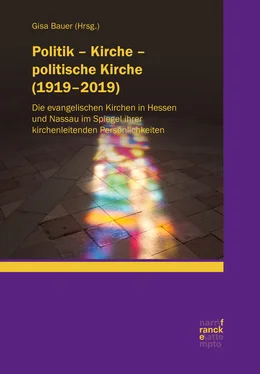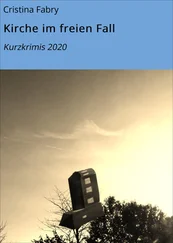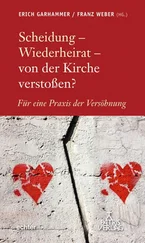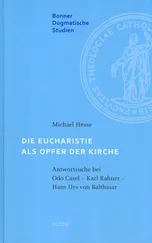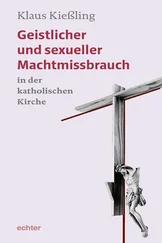
Sebastian Hüsch / Isabelle Koch / Philipp Thomas (Hrsg.)
Negative Knowledge
Narr Francke Attempto Verlag Tübingen
[bad img format]

This volume was published with the support of the Centre Gilles Gaston Granger , UMR 7304, the Centre national de la recherche scientifique (C.N.R.S.), Aix-Marseille University, and the Région Sud Provence Alpes Côte d'Azur.
© 2020 • Narr Francke Attempto Verlag GmbH + Co. KG
Dischingerweg 5 • D-72070 Tübingen
www.narr.de• info@narr.de
Das Werk einschließlich aller seiner Teile ist urheberrechtlich geschützt. Jede Verwertung außerhalb der engen Grenzen des Urheberrechtsgesetzes ist ohne Zustimmung des Verlages unzulässig und strafbar. Das gilt insbesondere für Vervielfältigungen, Übersetzungen, Mikroverfilmungen und die Einspeicherung und Verarbeitung in elektronischen Systemen.
E-Book-Produktion: pagina GmbH, Tübingen
Print-ISBN 978-3-7720-8686-1
ePub-ISBN 978-3-7720-0214-4
Sebastian Hüsch, Isabelle Koch, Philipp Thomas
The advent of Modernity was accompanied by a radical criticism of traditional metaphysics. First during the Enlightenment, and later even more so with Nietzsche and his criticism of all “backworlds” (“ Hinterwelten ”1), any attempt to identify ultimate justifications or knowledge that transcends immanence has become largely suspect. If the reinstatement of metaphysical systems whose aim is to “explain everything”2 – as formulated, with irony, by Kierkegaard – no longer appears to be possible or even desirable, it remains an open question as to whether metaphysical questions can still be legitimately asked in the post-metaphysical era and, if so, in what form. This particular question is at the root of several recent philosophical enterprises, which bring back into focus types of knowledge that a positivist understanding of knowledge had relegated out of the realm of rationality if not confined to the realm of myth and which promote the adoption of negative approaches in order to redefine the horizon of rationality. Negativity is thus thought to serve as a methodological tool which allows us to ask those questions that man cannot not ask, all the while respecting the epistemological demands of the 21 stcentury. In France, Jean-Luc Marion for instance has theorized on “negative certainties”3 ( certitudes négatives ), and the German philosopher Thomas Rentsch who criticizes the predominance of a one-sided positivistic-scientistic rationality develops a metaphysics built on negativity4. Similar figures of thought can also be found in Bernard Waldenfels’ “hyperphenomena”5 which can be read as another attempt to go beyond the limitation imposed by reductionist concepts of rationality which could be called, following Horkheimer6, instrumental reason.
The systematic use of negativity has a long tradition in Western philosophy. Indeed, the idea of a rational apophatic or aphairetic approach, moving forward via negation rather than affirmation, has its beginnings in Antiquity. More specifically, the first traces are found in the works by the Neoplatonist Plotinus, and were further developed in later Neoplatonism and then in the Christian world, notably in the form of negative theology. In this tradition, the ability of the human spirit to understand a transcendent reality hinges upon the construction of a discourse which is entirely made up of negative propositions, and is yet considered likely to lead to knowledge.
The majority of the contributions in this book were originally presented at the conference on Negative knowledge , organized by the Centre Gilles Gaston Granger (UMR 7304) at Aix-Marseille University in November 2018. This conference was organized to examine this renewal of reflections on negativity in order to evaluate the contributions negative approaches can make to 20 thand 21 stcentury philosophy. The present volume is sub-divided in seven chapters which each of them examine the problem of negative knowledge from a different angle, using historical as well as systematical approaches.
Chapter 1 (“Ontologies and Metaphysics of Negativity”) studies philosophical thoughts that have chosen to make negativity the ontological foundation of reality. Through a broad inventory of religious and philosophical discourses in Antiquity, Jean-Marc Narbonne shows that Greek thought, while deploying a set of metaphysical assertions on gods and principles, always does so with an assumed reserve and minimalism; according to him, contemporary interest in negative knowledge would benefit from meditating on this cultural mindset. Ada Bronowski for her part looks at an ancient tradition that exemplifies this tendency towards parsimony in metaphysical discourse: epicureanism, and the echoes that Leopardi’s poetry offers of this philosophy. Finally, Tilo Eilebrecht deals with Plotinian Neoplatonism, well known as another great Greek philosophy that makes non-being the principle of things. A comparison with the Taoist theory of the first principle as Dao shows that, despite similarities, these are fundamentally different forms of negative philosophy, one more theoretical (Plotinus), the other more practical (Laozi).
The papers included in chapter 2 (“Negative Anthropologies”) illustrate how negativity has to be considered as fundamental for the constitution of the Self. Jörg Disse illustrates the basic role of negativity in the constitution of a conscience of the Self using as a starting point for reflections on the doctrine of God from Thomas Aquinas and referring to the approach of pre-reflective consciousness as theorized by the Heidelberg School, whereas Emil Angehrn shows the potential of accessing the human world from negativity, illustrating his claim with reference to negative theology, critical theory, philosophy of existence, and hermeneutics. Oliver Victor choses to focus on one concrete example, claiming that Nietzsche’s anthropology is to be best understood as a negative anthropology.
Chapter 3 (“Negative Theology and Apophasis”) is dedicated to one of the most classic topics in the field of negative knowledge: negative theology as apophatic discourse on God, or any other figure of transcendence. Daniel Bloom addresses this subject by examining Plotinus’ vain attempts to prove that the great genera are one and are the Intellect itself, and interprets the failure of the plotinian arguments in an apophatic way. In medieval Christianity, Florin Crîșmăreanu considers the ambiguous place of the apophasis in the Latin theological tradition through John Scottus Eriugena, showing what Eriugena’s theses owe to his work as a translator of Pseudo-Dionysius the Areopagite and Maximus the Confessor. In the third contribution, Romain Debluë examines the same question in the writings of an author much more rarely associated with negative theology, Thomas Aquinas. Debluë nevertheless defends the thesis that Thomas develops a negative path of knowledge of God, in which negation has meaning and strength only because it allows us to make an affirmation. Beyond the ancient and medieval world, Pierre Delain shows how negative theology is at the heart of Jacques Derrida’s thought, and how the role of divine names in negative theology makes it possible to conceive the derridian status of unconditional ethical principles.
Chapter 4 (“Languages of Negativity”) focuses on aspects of negativity in language, with contributions ranging from an analysis of apophasis in contemporary analytical philosophy of religion (Sebastian Gäb) to poetic language as a means of expressing the inexpressible as illustrated in the poetry of Paul Celan (Miguel Alirangues), and including the use of strategies of indirect communication as a generator of meaning ex negativo as they can be found in the writings of Søren Kierkegaard and in Zen-Buddhist köans (Sebastian Hüsch), and the development of images of dissimilarity in the narrations of Georges Batailles as a form of negative theology (Mathias Le Gargasson).
Читать дальше
